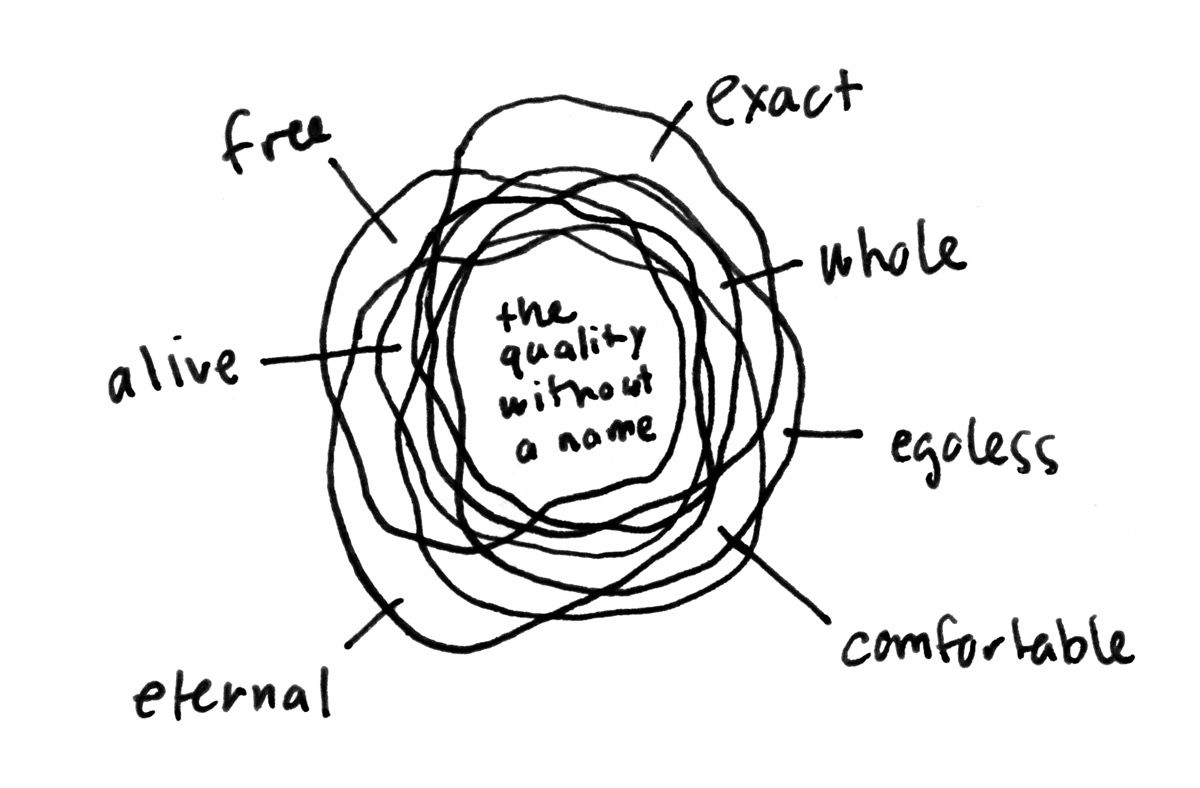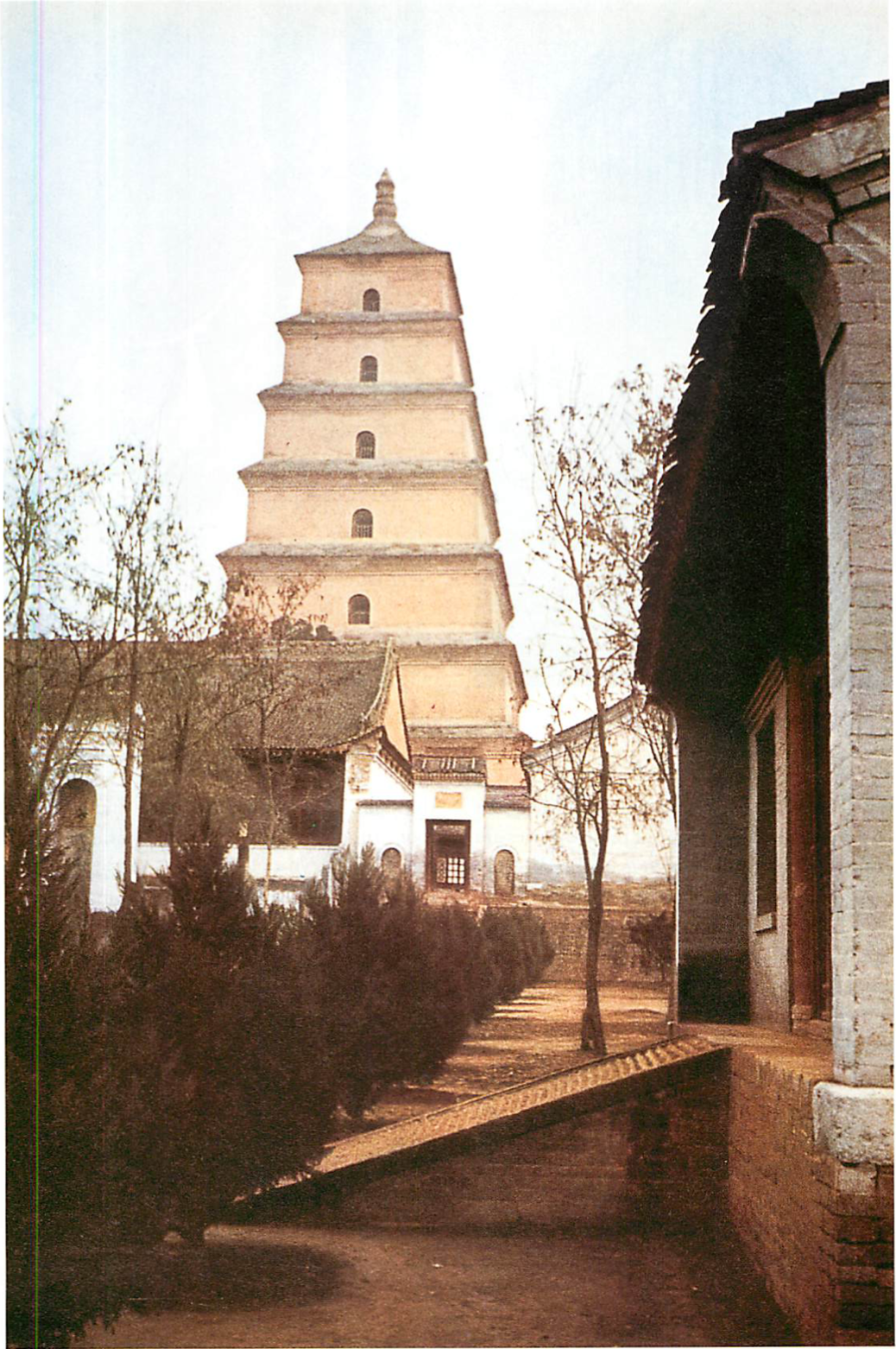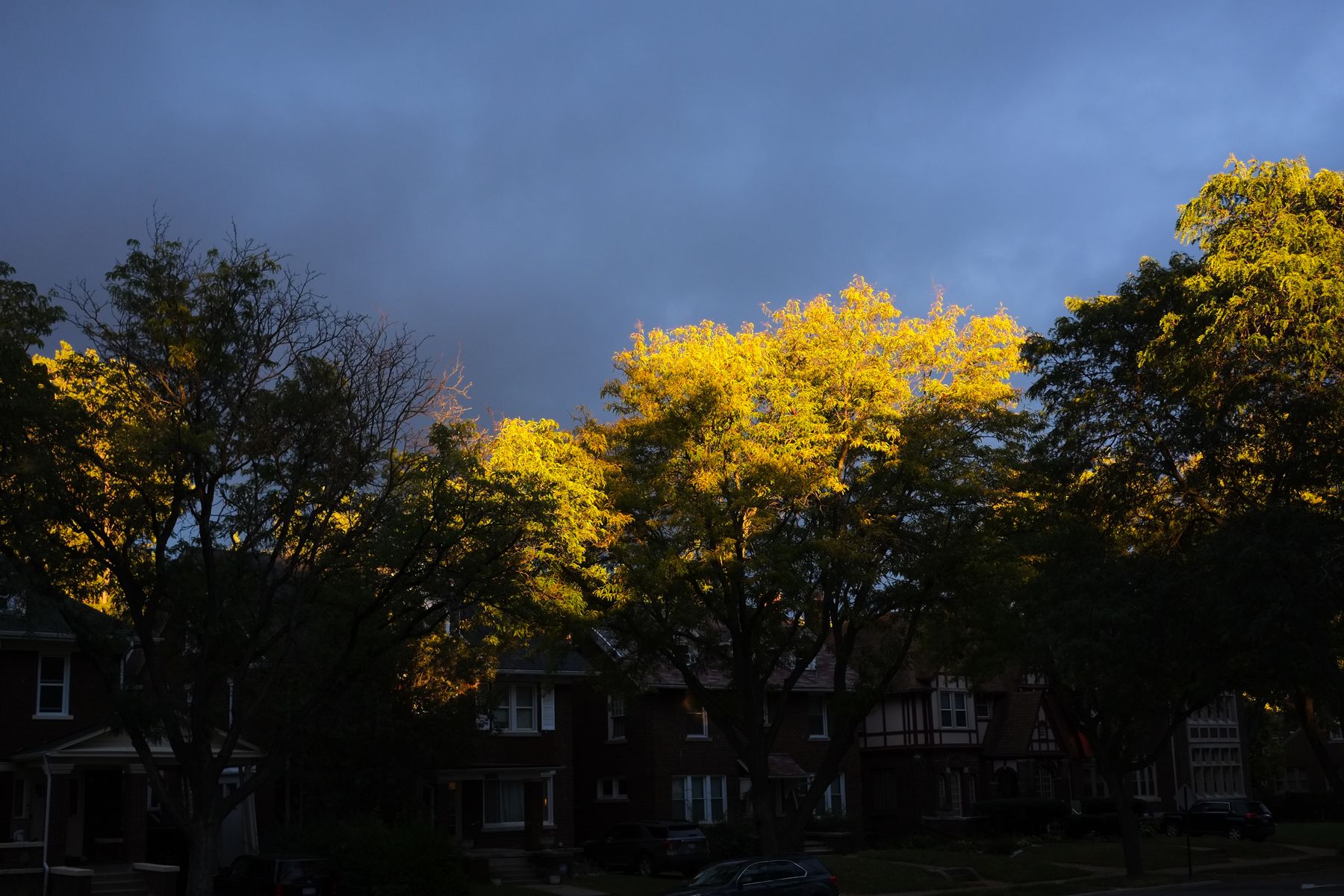Week 2. A late one this week, because I’m only now getting to review my notes; when I’m not in my Zoom classes, I want to do just about anything else besides stare at a computer screen. I’m also trying not to skip any weeks’ letters if I can. We’ll see.
Last time I went over the structure of the architecture program I’m taking; this week I’ll talk about the seminar, where we’re currently reading the initial of four Nature of Order books, The Phenomenon of Life.
My first introduction to Chris Alexander came when I was living in New York. The Bay Area chapter of our Tech Book Club had put together a reader on design patterns that included excerpts from various Alexander texts. The thing I remember most from my reading then was the description, in A Timeless Way of Building (1979), of what makes beautiful spaces beautiful. He calls it The Quality Without a Name:
[T]he difference between a good building and a bad building, between a good town and a bad town, is an objective matter. It is the difference between health and sickness, wholeness and dividedness, self-maintenance and self-destruction [...] But it is easy to understand why people believe so firmly that there is no single, solid basis for the difference between good building and bad. It happens because the single central quality which makes the difference cannot be named.
Why such an abstract term? Alexander is trying to be precise. He goes through a list of alternatives: alive (too tied to the organic), whole (too finite and self-contained), comfortable (too varied in meaning), free (too theatrical at times), exact (too constraining), egoless (too impersonal), eternal (too mysterious).
When I re-read these pages, I pictured it as a venn diagram, with The Quality Without a Name (which Alexander fans have shortened over the years to qwan) in the overlap:

His previous book, A Pattern Language (1977), was a compendium of examples of the kinds of spaces and situations, from personal objects all the way up to a house, neighborhood, city, society, that facility this quality. A lot of Bay Area hippies used APL to build their houses, but from what one of the instructors was saying in class, the result was often more quaint and folksy; these patterns alone didn’t generate the kinds of buildings that traditional cultures were capable of creating, that Alexander points to in his books. There were no Alhambras, no Wild Goose Pagodas.

The Nature of Order books are Alexander’s effort to figure out what was missing. It’s his unified theory for what makes spaces beautiful, come alive. The problem he identifies in the preface of Book One is more than just a difficulty in naming and language; it’s that of the mechanistic worldview that we children of modernity carry around in our heads. And it starts with René Descartes:
His idea was: if you want to know how something works, you can find out by pretending it’s a machine.
To Descartes, this was one method out of many; to us, it’s become our dominant reality.
In the world-view initiated by Descartes—and largely accepted by scientists in the 20th century—it is believed that the only statements which can be true or false are statements of mechanisms.
Anything that can’t be proven true or false in the mechanical sense is chalked up to subjective experience. The inner experience of a person, or a group of people, are left out of the picture, as is a clear understanding or alignment over value (in the ancient sense). When a new apartment development unfolds in a way that it destroys the fabric of a neighborhood, this feeling is chalked up to subjective taste and opinion. Or the damage can only be pointed to in mechanized inputs and outputs: building codes, rent prices, proportions of subsidized units, etc. When any person walking down the street can take one look and feel that the new building doesn’t belong.
If the only statements considered true or false are mechanistic statements of fact, and if all statements of harmony, beauty, and what is better or worse, what has more life or less life, are always considered matters of opinion which can only be referred to private and arbitrary canons of judgment – then, in principle, rational discussion about buildings should be impossible.
I remembered DB telling me, years ago, an anedcdote about how Descartes would sit at a desk and rip doves apart with his bare hands, looking for their souls. When I tried to find a source text and couldn’t, I texted DB asking where it came from. He said I didn’t hear it from him; I might’ve dreamed it. But even if dreamt, I’m including it here.
Anyway. What’s missing from modernity, according to Alexander, is a sharable point of view. In the Nature of Order books, he lays out an opposing, non-mechanistic worldview, rooted in The Quality Without a Name. Except in these books, he ditches the esoteric phrase and starts using a different word: wholeness.
